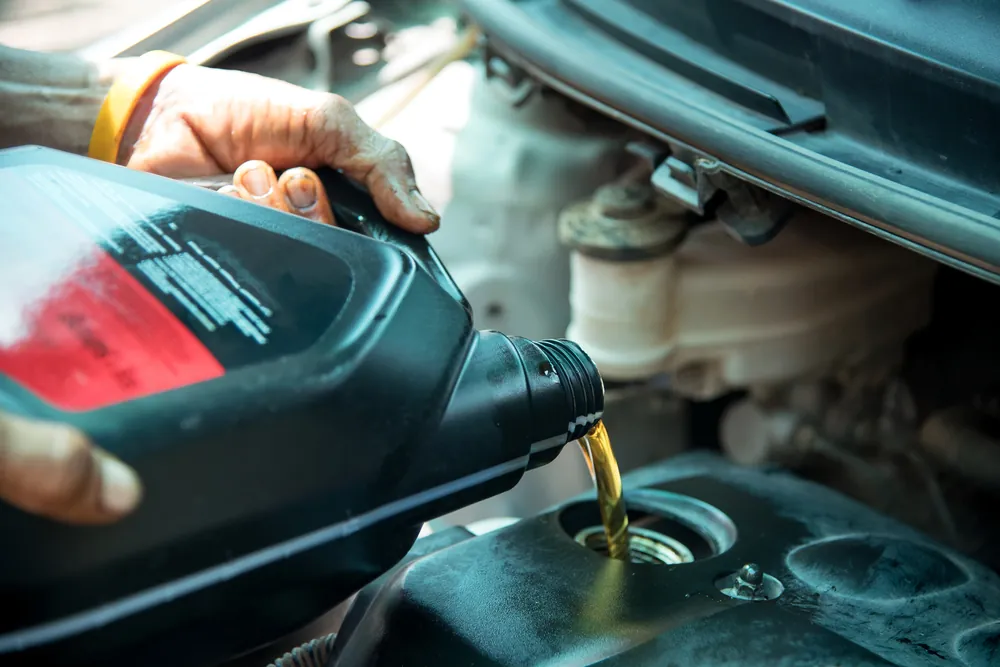
Shipping Automotive Lubricants
With our competitive pricing and extensive network of carriers, we can guarantee you cost-friendly and efficient freight.
Shipping Automotive Lubricants
When packaging automotive lubricants for shipping, ensure they are packed in containers for transporting liquids. Containers best for shipping automotive lubricants often include durable plastic containers or metal drums/containers. Do not ship without ensuring the containers are securely sealed and labeled. One of the most important things to remember about shipping automotive lubricants is that various frequently shipped automotive parts, including automotive lubricants, can fall under the hazardous materials and dangerous goods categories.
Automotive Lubricants are usually considered hazmat materials because they are often flammable—some frequently shipped hazmat automotive components, including aerosols, paints, batteries, and engines. Shipping automotive lubricants will require you to comply with various transportation regulations and requirements, such as the HMR (Hazardous Materials Regulations), DOT (Department of Transportation), and the IMDG (International Maritime Dangerous Goods) codes and regulations. While this step can initially feel overwhelming, your FreightCenter agent will help you determine your Freight/Hazmat class and the subsequently required shipping labels. Depending on the composition of the lubricants, you may need to display “flammable” or “Hazardous Material,” among other warning labels.
In addition, your FreightCenter agent will also help you determine and complete any required paperwork. We will ensure you have completed the necessary documentation, including packing lists, invoices, dangerous goods declarations, bills of lading, customs, permits, and certifications. When shipping any hazmat material, you must also provide an MSDS (Material Safety Data Sheet). If you do not have this document, obtain it from the manufacturer, who can offer it, among other essential details needed for shipment.
Awards and Endorsements
- 2021 Food Logistics’ Top Green Providers
- 2021, 2017 & 2016 Food Logistics’ Top Green Providers
- 2021 & 2018 Supply & Demand Chain Executives’ Pros to Know: Matthew Brosious
- 2020 & 2019 Top Food Logistics’ 3PL & Cold Storage Provider Award
- 2020 & 2019 Business Observer’s Top 500 Companies on the Gulf Coast
- 2020 & 2017 SmartWay® Transport Partner
- 2020 & 2017 Food Logistics’ Champions: Rock Stars of the Supply Chain
- 2020 Best of Palm Harbor Awards for Local Businesses
- 2017 Green Supply Chain Award from Supply & Demand Chain Executive
- 2017 Tampa Bay Business Journal Heroes at Work
- 2016, 2015, & 2012 Food Logistics Top 100 Software and Technology Providers
- 2013 Top 100 Great Supply Chain Partners by SupplyChainBrain
- 2012 TIA Samaritan Award Honorable Mention
- 2012, 2011 & 2010 TBBJ Fast 50 Recipient
- 2013, 2011, & 2010 Diversity Business Top Businesses

Why Choose FreightCenter for Shipping Automotive Lubricants?
Choosing FreightCenter will make your shipping process seamless. Below are just some of the benefits working with our Third Party Logistics company will have on your shipping experience:
- When you partner with FreightCenter, a premier 3PL (Third Party Logistics) company with over twenty-four years of experience within the logistics industry, you are choosing success. Over the decades, our team has dealt with nearly every shipment imaginable. There is no shipment process we cannot help you with!
- FreightCenter employs a knowledgeable staff that is always willing to learn and grow with industry changes and advancements. Our team is happy to answer your questions throughout the process!
- FreightCenter is the middleman between you and your carrier, meaning you will not have to play phone tag with the carrier. Your agent will directly communicate with you and your carrier, delivering any necessary information or updates between you.
- We secure the best transit carrier and route for you at the best price instead of you needing to spend hours figuring out the logistics or searching for a worthwhile deal.
- We make it easy to ensure your shipments by guiding you toward the best providers. Whether you need full or partial coverage, we have you covered!
- We arrange the pickups and drop-offs while also making sure to track each shipment in transit. This ensures that you know where your packages are every step of the way!
Why Choose Us For A Freight Quote?
- Shipping Quotes anytime
- Get Freight Shipping Quotes to anywhere in the U.S. & Canada.
- Unbeatable discounts on your freight LTL, truckload, rail, air, and more
- Automated Freight tracking, paperwork & invoices
- Manage all quotes & shipments in one place
- 24+ years of logistics experience working for you!
booked
Automotive Lubricants
Automotive Lubricants are essential specialized substances that reduce friction between moving parts and cool, lubricate, and protect auto components. Automotive lubricants can increase longevity and reliability. Some common types of automotive lubricants include engine oil, transmission oil, gear oil, and brake fluid. Automobiles require different lubricants to ensure optimum protection and performance, so needs often vary. Paying attention to the type of automotive lubricant your vehicle requires will help ensure longevity. Automotive parts, components, and lubricants are a high-demand shipping item, so you can rest assured that FreightCenter has plenty of experience and expertise shipping automotive lubricants garnered in our twenty-five years of business. We partner with qualified, reputable carri ers with extensive experience shipping automotive lubricants and other hazmat materials.
To create value for our customers by delivering customized shipping solutions that meet their unique needs and to fulfill shipping demands from simple to complex with expertise, guidance and ingenuity.
LTL shipping involves combining multiple small shipments from different customers onto one truck, allowing each customer to share the shipment cost. Trust the experts at FreightCenter to give you the best prices and the most comprehensive options for all your LTL freight shipping needs.
Truckload shipping, also known as full truckload (FTL), is a transportation option for freight that requires the entire trucks trailer space. Unlike LTL shipping, FTL shipping is reserved for larger commodities that exceed LTL weight and size limits, typically weighing more than 20,000 pounds or having dimensions that exceed 12 feet in length, 8 feet in width, and 8 feet in height. We deliver optimized solutions for full or partial truckloads and competitive dry van, flatbed, and refrigerated freight pricing. We can cover your full truckload shipping needs.
Nationwide Expedited Trucking services move your freight securely and rapidly. Your freight requires fast delivery; our freight shipping experts can get your shipment fast, whether in one large box or a full truckload. Expedited shipping is a transportation option that prioritizes the speed of delivery for freight that needs to be shipped quickly. This can be especially important for urgent situations, such as engine repairs or replacements for critical machinery.
Specialized is a transportation option for items that require specialized handling, equipment, or shipping conditions. Specialized shipments may include high-value engines, oversized engines, or engines that require temperature-controlled transportation. The most reliable Specialized Freight Services rates from all the top carriers are just a few steps away. From white glove service to international shipping, we've got you covered.


